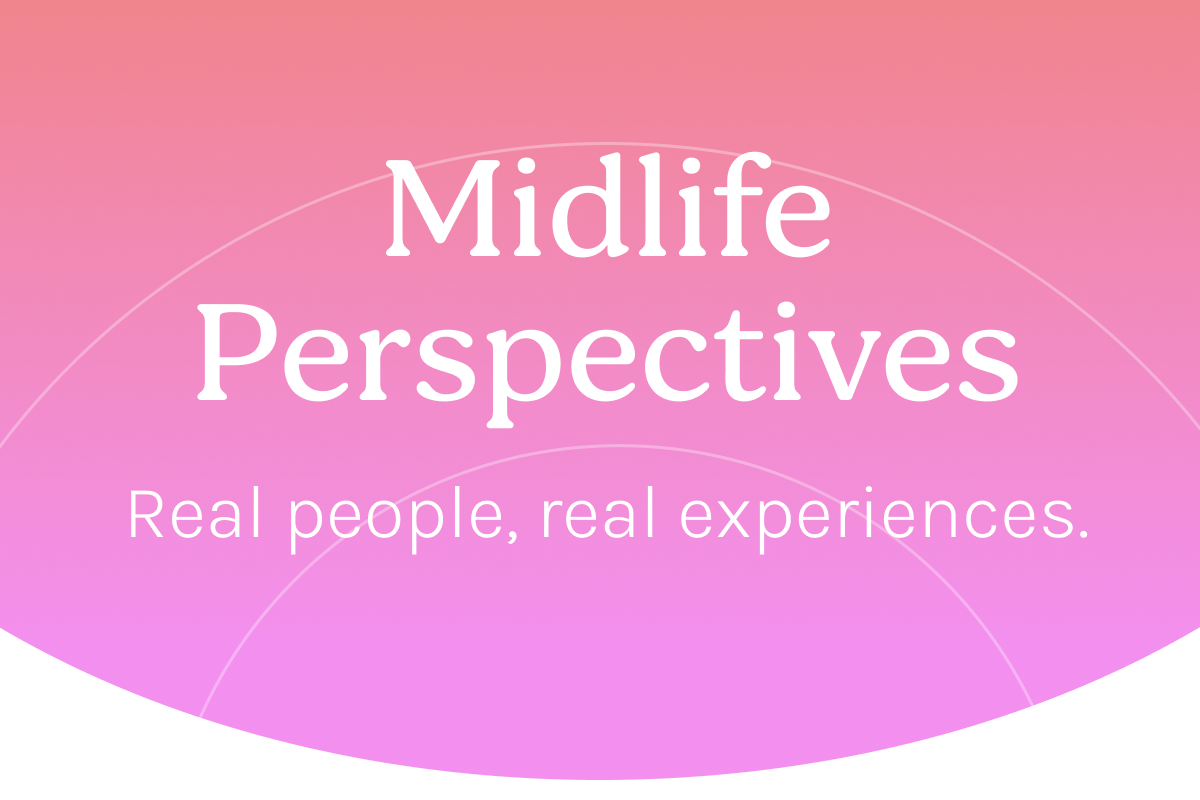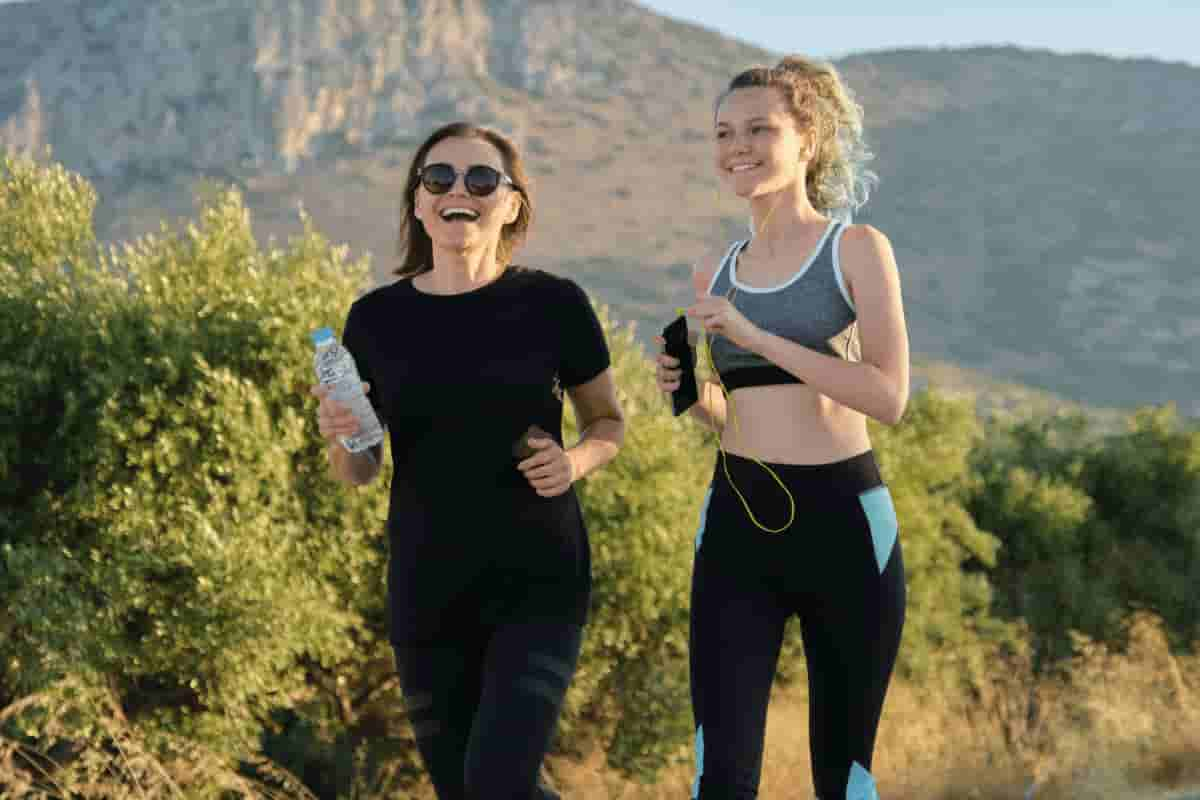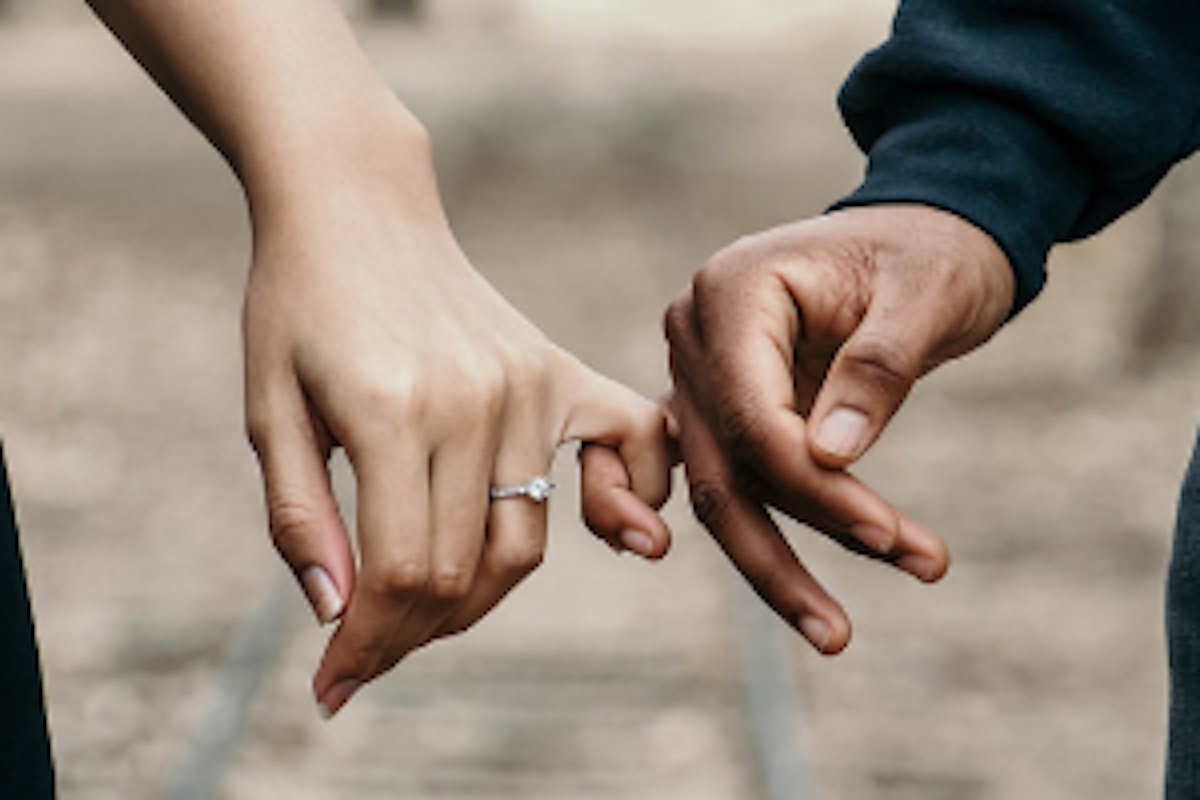Amber, 53. One foot in front of the other.

Want to share your own story? Send a chat message or email annemarie@midday.health.
Your privacy is important to us—we are happy to keep you anonymous.
Hot flashes
I haven’t seen my period since 47 years old, and I have ongoing hot flashes that are pretty consistent in my life. I just learned to live with them.
I had initially started hormone replacement therapy to help but then I was diagnosed with pre-ductal carcinoma so they recommended that I just not go on anything. And so when I did it was just like, well that sucks.
It hit me at the time I was transitioning into a new career in front of people. You’re trying to act cool and collected in front of a class and you don’t want to be ripping off clothes.
The palpitations before your hot flash comes on, that aura—it sucks. You’re like, “here it comes.” That is what I hate maybe more than the hot flash.
What I learned about menopause from my mom
My mom is 80 and still has hot flashes consistently. She was on hormone replacement for a long time and then she just said “Screw it—I’m just tired of buying them and tired of taking them.”
So I’ve always dreaded it because you could see it hit her—profusely sweating, red, taking all of her clothes off. Dramatic and yet real. I was always kind of embarrassed by that as a kid growing up. I think I had a negative connotation associated with hot flashes, which I still think are hideous, hideous things. The effect on quality of life from that can be just extraordinarily painful.
My mom didn’t talk about it other than “This is menopause.” She didn’t say what will happen or when or anything like that. So nobody really preps you for it. But then again, at the same time, who wants to be prepped for it? I don’t know if I do.
Losing my identity
I’ve never been an anxious person, or depressed or irritable. You’ve got this overlapping of all these feelings on top of COVID on top of a very intense job. I feel like I’ve lost a certain part of my identity because I cannot parse out what exactly is going on.
I don’t know where the source is but I cannot help but think that these unseeable and untouchable changes that are going on… they have to be contributing to it.
And yet it’s just one of those things that all the women before you have just accepted and it’s just kind of hard to parse out why you’re feeling the way that you’re feeling.
The impact of menopause
Menopause is not just physiological and emotional, it’s relational. It impacts your work which impacts your economics. It impacts decision-making. It has tentacles into everything and it’s hard to articulate.
One foot in front of the other
I’ve kind of just bulldozed through it. You have to put one foot in front of the other. You just have to. So when I’m not sleeping well, because I’ve taken the covers on and off 322 times in the night, I just suck it up.
Self-discovery
I’m not unhappy to be in midlife. I made it here and now I can take elements of myself and amplify them because I was always taught not to use those elements. They were not necessarily seen as strengths and they are. I’m trying to reconnect to certain aspects of myself.
Getting older is very freeing. You get kind of proud of yourself. You know, “Good job, you told them what you thought.”
But it’s so funny because you do worry about it a little bit. People knew me when I was younger and they know me now and they’re like, “God, she’s kind of a bitch.” I’m not a bitch—I’m assertive and I know what I want and I know where I want us to go and I know the steps that we need to take in order to get there. So if that makes me a bitch, then I guess I am. But it’s just like, “Sorry.”
My wife started perimenopause at the same time as I did
It’s two wackos walking around. Just crazy irritable, going through their own thing. Now you’re in a bed where I’m ripping off covers, she’s ripping off covers.
You lose your hormones, your drive just goes to hell in a handbasket. And now you have two women that have it. It’s really, really stressful on a relationship.
I don’t see my wife as just my friend, but you lose that aspect of your relationship. Something comes in between you—this physiological, psychological, emotional change that’s going on and you’re both going through it.
We actually both approach it similarly—we’re both very “pull your boot straps up,” “one foot in front of the other.” You just keep going. That’s our generation and the generation of parents we had as well.
Exercise
I’ve always maintained that exercise and movement are free endorphins. It’s free Prozac. It has such a cascade of hormonal changes that the very least I can do is continue to do that as much as possible.
I started trail running because I’m a hiker at heart. I love long-distance hiking so I’ve started to do 50ks. That’s my thing right now. And I’ve always tried weight training just because I’m older and I should be doing it, but I don’t really like it. So I do some things I don’t like because I know the benefits and then I try to do the things that bring me the most inner peace possible.
Training my mental capacity
My goal for the next years of my life is to expand the capacity in my mind to allow me to reach goals that I didn’t think were possible. I’ve always been very athletic but I never pushed myself super hard because I think in some ways I just want to have fun. I didn’t necessarily want to fail.
I want to push myself again in these adventures that I love. It’s not so much about my physicality. For me it’s about a lot of mental training and then that in and of itself opens up the opportunities because you start thinking expansively instead of limited.
Sign up for more unique women’s health content
By submitting this form, you agree to the Lisa Health Privacy Policy and Terms of Use


